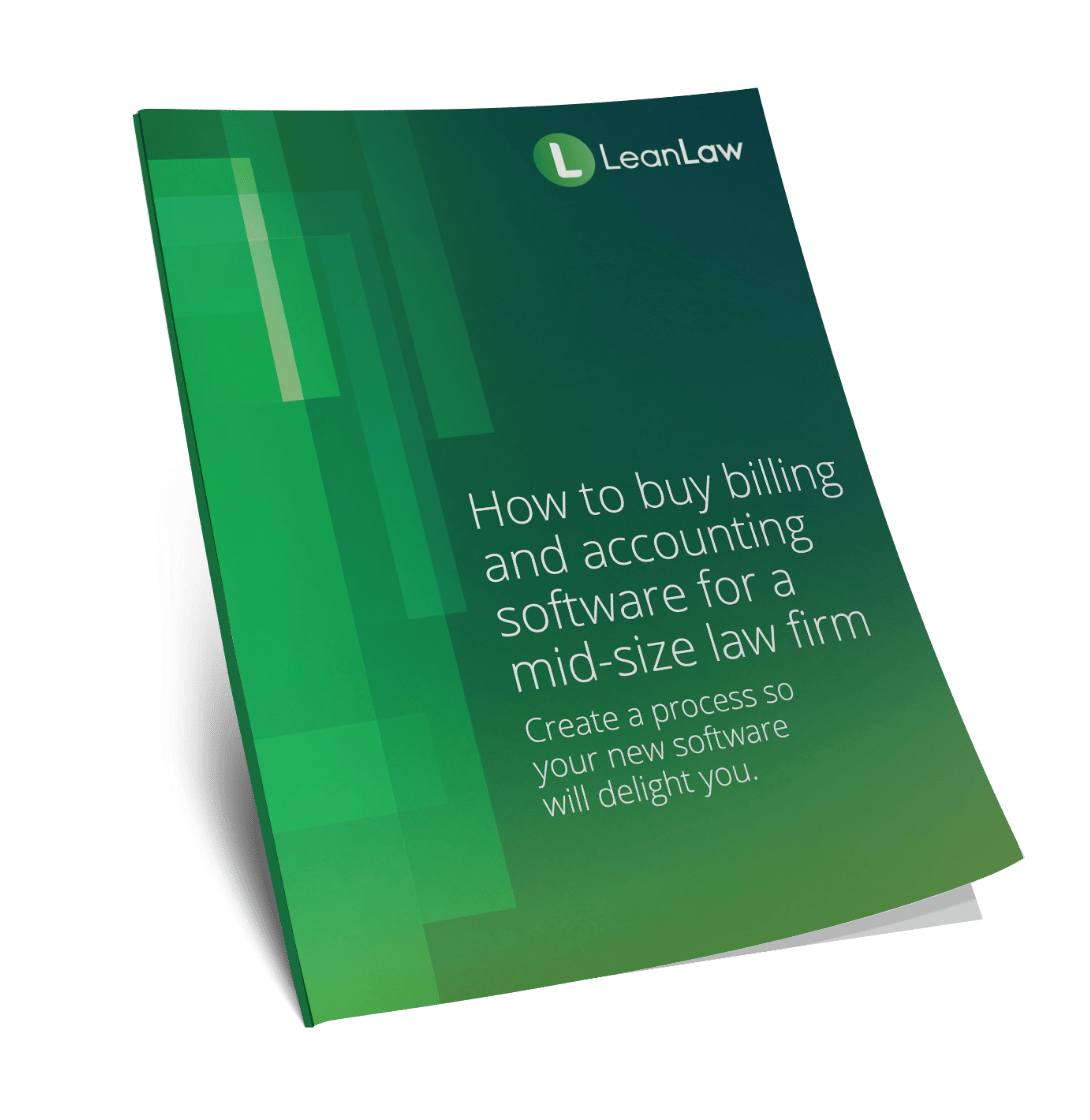
We all know that trust accounting is a crucial aspect of financial management for law firms, but what exactly it is and how it needs to be implemented is another story.
Though there are many parts of legal practice management, there are some that are definitely more crucial than others.
One of those areas is trust accounting.

Key Takeaways
- “What is trust accounting?” is a common question that almost every lawyer will have to ask themselves if they are to practice law and have clients.
- Trust accounting is one of many elements to law practice management but it is by far one of the most important ones.
- Knowing the dos and don’ts of trust accounting best practices will go a long way in helping you determine how best to meet your firm’s trust accounting needs.
Trust accounting plays a vital role in maintaining the integrity and transparency of financial transactions within a law firm.
Good trust accounting will protect your client’s funds and will help to maintain the trust and confidence clients place in their attorneys.
Not only that, but proper trust accounting practices are not only essential for legal and ethical reasons, but also for regulatory compliance and professional accountability.
Whether you are new to trust account management and operations or are just looking for a refresher course, let’s do a deeper dive into what trust accounting is and why it’s such an important part of your practice to get right.
The Story Behind Trust Accounting
Trust accounting has a long history rooted in the legal profession’s commitment to safeguard client funds and their trust and confidence in the legal system.
Building and keeping a client’s trust is one of the most important things that attorneys need to learn to do and through good trust accounting, this can be possible.
The concept of trust accounting emerged as a response to the need for a systematic and transparent approach to managing client funds.
Attorneys are often entrusted with significant amounts of money, whether it’s for future settlements, up-front retainers, or to hold funds for other legal matters.
Here are the most common reasons that an attorney or law firm may have to handle a client’s funds:
- At the beginning of representation when initial funds are received: In this situation, attorneys will place “unearned income” into the trust, including upfront fees, retainers, or cash advances. Again, by law attorneys can’t use this money for operations and it must be held in trust until the completion of their case or matter.
- When and if there is payment from a settlement: Transactions revolving around real estate for example must pass through a trust account and must not be commingled with operating accounts.
- When an attorney acts as a fiduciary on behalf of a client or the client’s estate: Similar to settlement, these “third party funds” that are handled by an attorney when acting as a fiduciary must remain separated.
The responsibility to protect and account for these funds has led to the present-day development of trust accounting compliance and regulations.
Over the years, trust accounting has evolved to address the changing needs and complexities of the legal profession. Legal bodies and regulatory authorities have established rules and guidelines to ensure the proper handling of client funds.

Though some of these rules vary by jurisdiction, it’s common for some basic ones to apply to most law firms.
Most jurisdictions make it clear that any practicing attorney or law firm that they oversee must manage their client’s funds by holding them in bank accounts that are separate from the firm’s operating account, maintain accurate records, conduct regular reconciliations, and provide clients with periodic accounting statements.
The advent of technology has also significantly impacted trust accounting practices.
Traditional manual methods of record-keeping and tracking transactions have now given way to sophisticated trust accounting software solutions. These software tools automate many trust accounting tasks, making the process more efficient, accurate, and reliable.
Schedule a demo
The Trust Account Road Map
Let’s look at an example of how a client’s funds should be properly handled.
1. A client or third-party (such as an insurance company or another attorney) hands your office a check for money that is not your money. This could be things such as unearned legal fees, settlement funds, etc.

2. You deposit this money into your firm’s trust account. Depending on the trust accounting rules and regulations in your jurisdiction, if the sum is large enough and belongs to a single client, you may be obligated to open a new interest-bearing separate account solely for that client. Otherwise, these funds will go into your normal, pooled client’s trust account.
3. As some of these funds are earned by you, or are required to pay off fees or expenses, you will typically write a check from your trust account to pay the amount into your operating account (or you may be able to electronically transfer yourself your earned fees – again, depending on the rules governing trust accounts in your area.)
4. When a case is settled, and all claims are paid, any of the remaining funds will then be refunded to the client and you will no longer be allowed or responsible to manage assets for that particular client or case.
Though this is a fairly simplified explanation of the ways in which a client’s trust assets should be managed, it gives you a basic idea of what is entailed.
Obviously, the whole process becomes much more complex with the more clients a firm has, and the more trust transactions that need to take place.

But either way, it’s imperative that your firm knows how to manage trust accounts and properly handle any and all money that should be deposited and withdrawn from them.
The Big Dos and Don’ts of Trust Account Management
While client trusts may seem pretty straightforward, keeping track of the deposits, withdrawals, any interest earned (if applicable) and all reporting can become pretty complicated, particularly for firms who handle larger amounts of money or have lots of clients.

And whether you work for a large legal practice or run your own law firm, it’s important that you have a good grasp on what’s expected of you when handling these client trust assets if you want to stay compliant with the rules and regulations as well as maintain a strong relationship with your clients.
Here’s a snapshot of some of the biggest dos and don’ts when it comes to trust account management:
Dos for Trust Account Management
- Do segregate funds: Keep client funds separate from the law firm’s operating funds by maintaining a dedicated trust account.
- Do maintain accurate records: Keep detailed records of all trust account transactions, including deposits, disbursements, transfers, and accrued interest.
- Do perform regular reconciliations: Reconcile trust account statements with accounting records on a regular basis to ensure accuracy and identify any discrepancies.
- Do follow proper billing procedures: Bill clients accurately and promptly, clearly specifying the services provided and the amounts due from the trust account.
- Do provide periodic statements: Furnish clients with regular accounting statements, detailing the status of their trust funds and any relevant transaction information.
- Do comply with jurisdictional regulations: Stay informed about the specific rules and regulations governing trust account management in your jurisdiction and ensure compliance.
- Do seek professional advice: Consult legal and accounting professionals to understand and address any complexities or uncertainties in trust accounting.

Don’ts for Trust Account Management
- Don’t commingle funds: Avoid mixing client funds with personal or business funds. Often multiple client’s funds can be held in a pooled trust account, but never have those funds mix with the firms. Keeping client funds separate is a fundamental principle of trust account management.
- Don’t use trust funds for unauthorized purposes: Use client funds only for authorized purposes, such as paying expenses directly related to the client’s matter or distributing funds to the client as instructed.
- Don’t overdraw trust accounts: Ensure that trust account balances are sufficient to cover outstanding client obligations and avoid overdrawing the account.
- Don’t neglect record-keeping: Accurate and up-to-date record-keeping is essential. Failure to maintain bank statements and other important trust documents can lead to accounting errors, compliance issues, and potential disciplinary action.
- Don’t delay reconciliations: Promptly reconcile trust account statements to identify any errors, discrepancies, or fraudulent activities. Delayed reconciliations can lead to unresolved issues and potential financial mismanagement.
- Don’t disregard ethical obligations: Uphold your ethical obligations as an attorney, including the duty to act in the best interests of your clients and safeguard their funds.
- Don’t neglect ongoing education: Stay informed about changes in trust accounting regulations, ethical guidelines, and best practices. Continuing education and professional development can help you maintain a high standard of trust account management.
- Following these dos and don’ts can help attorneys and law firms maintain proper trust accounting practices, ensure compliance with regulations, and uphold their professional responsibilities.
LeanLaw: Trust Accounting Software Designed for Your Busy Firm
This is where strong legal trust accounting software comes into play.
In order to practice law effectively, you must understand and adhere to the rules of trust accounting.
Having the right legal trust accounting software can make all the difference in ensuring compliance with the “dos” and avoiding the “don’ts.”

LeanLaw is that software.
Designed by legal professionals for legal professionals, LeanLaw is the ultimate solution that caters specifically to the needs of law firms when it comes to trust accounting and making sure that your firm is adhering to all the trust accounting rules and regulations in your area.
With its robust features and intuitive design, LeanLaw empowers firms to effortlessly segregate funds, maintain accurate records, perform reconciliations, generate detailed statements, and adhere to jurisdictional regulations.
By leveraging LeanLaw’s powerful capabilities, law firms can mitigate risks, streamline processes, and gain the peace of mind that comes with knowing they are meeting their ethical and legal obligations.

Step-By-Step Process for Attorneys & Law Firmsto Buy Law Firm Software
Understand who needs what and prioritize features as you investigate new software. Download Buyers Guide eBookWith software like LeanLaw integrated into your tech stack of practice management software, trust accounting becomes a seamless and efficient process, enabling you to focus on serving your clients with utmost professionalism and trustworthiness.
That you can take to the bank.
Reach out to LeanLaw today and discover the best way to manage all your trust accounting and legal accounting needs.




